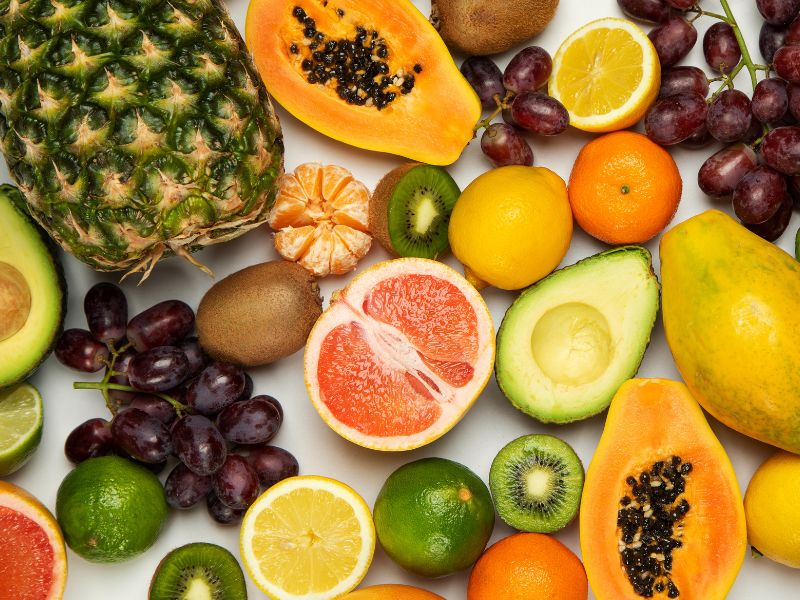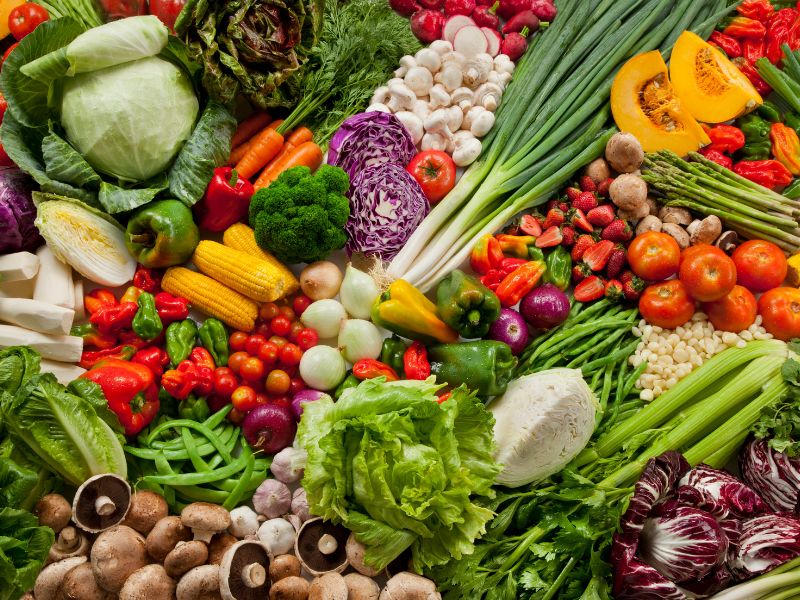Are you a paw parent who’s looking for creative ways to nourish your adopted dog? These days, it’s easy to integrate human-grade food as meal add-ons or homemade treats to serve your canine baby. However, giving food fit for humans is not always a good idea as some ingredients are surprisingly harmful for pooches. In this Waldo’s Friends blog post, we discuss the fruits and vegetables that are safe and unsafe for dogs. We talk about:
- The types of food dogs should eat
- Fruits that are good and bad for dogs
- Vegetables that are good and bad for dogs
- Other important dog feeding reminders
Always remember: This post should not replace a consultation with a veterinarian or a dog nutritionist. You should always get your doctor’s approval before giving your dog anything new.
The types of food dogs should eat
Dogs are omnivores whose daily diet should consist of meat- and plant-based food to meet all their nutritional requirements. Compared with cats that are obligate carnivores, dogs have larger intestines equipped to digest different food types. This includes fibrous indigestible material found in fruits and vegetables, or what is simply known as roughage.
Whether in dry or wet food format, commercially sold “nutritional and balanced dog food” contains a carefully formulated blend of proteins, fats, carbohydrates, vitamins, minerals, and water that matches a dog’s life stage and energy requirements. Some examples of energy requirements include growth, reproduction, and medical or behavioural conditions.
When given the right type and amount of complete and balanced dog food daily, a pooch will have shiny skin and coat, strong muscles and skeletal structure, as well as effective immune, digestive, and excretory systems.
Fruits that are good and bad for dogs
Fruits are fleshy, edible products of seed-bearing plants or trees. Ranging from sweet to sour, fruits are excellent sources of fiber, vitamins, and minerals. They are typically eaten ripe, and served as is or processed into desserts and snacks.

Fruits safe for dogs:
Dogs can consume fruits as long as all the hard parts are removed prior to feeding. This includes the rinds, cores, seeds, pits, stems, and leaves. In addition, the fruit should be completely washed and chopped into smaller, chewable chunks. Do not serve him fruits mixed with sugar or xylitol, canned with artificial ingredients, or brined in salt.
- Apples (including its skin and green apple varieties)
- Apricots
- Bananas
- Bell peppers (including green and red peppers)
- Blueberries
- Cantaloupe
- Coconut
- Cranberries
- Dates
- Dragon fruit
- Figs
- Guava
- Honeydew
- Kiwi
- Mandarins
- Mangoes
- Melon
- Nectarines
- Olives (including black olives)
- Oranges (including Mandarin oranges)
- Papaya
- Peaches
- Pears
- Peppers (only non-spicy variants)
- Pineapples
- Raspberries
- Squash
- Strawberries
- Tangerines
- Tomatoes
- Watermelon
Fruits unsafe for dogs:
Some fruits contain chemical compounds that may cause gastrointestinal upset or immediate poisoning. These should be kept away from your canine pet at all times.
Vegetables that are good and bad for dogs
Vegetables are edible portions of plants such as the flowers, stems, leaves, and roots. Low in fat and carbohydrates, vegetables can be enjoyed by humans and some animals in raw and cooked forms.

Vegetables safe for dogs:
When serving vegetables to your canine, always remove the tough parts such as the seeds and stalks. Cook plainly and never add seasonings such as salt, spices, oils, and sauces. Let it cool and chop it into smaller pieces. You can even mash or blend it with his dog food.
- Asparagus
- Beets
- Broccoli
- Brussels sprouts
- Cabbage
- Carrots
- Cauliflower
- Celery
- Cucumber
- Eggplant (as long as he is not allergic to nightshade plants)
- Ginger
- Kale
- Lettuce
- Okra
- Potatoes (cooked variety including plain mashed potatoes)
- Radishes
- Spinach
- Sweet potatoes
- Zucchini
Vegetables unsafe for dogs:
Never include these harmful vegetables when preparing food or treats for your pooch. Vegetables from the allium species are highly toxic to dogs and cats, and should not be given whether it’s in fresh, cooked, dried, or powdered form. Meanwhile, pickled vegetables contain harmful substances such as salt, vinegar, and seasoning.
TIP: If you’re curious about which plants are toxic and non-toxic for dogs, check out ASPCA’s comprehensive list.
Other important dog feeding reminders
Fresh fruits and vegetables should only be given to your pet dog in limited amounts. Some fruits contain higher levels of sugar, so it’s best to check how much you can give per produce type depending on your dog’s age, weight, size, physical activities, and health conditions.
Follow your veterinarian’s recommendations to prevent weight gain, dental problems, obesity, and other complications from developing. Do not exceed 10% of your dog’s daily diet to ensure he meets his nutritional needs.
Before incorporating a new fruit or vegetable to your dog’s diet, observe how his body reacts to it by offering a small amount and monitoring him over the next 24 hours. If he manifests any unusual symptoms, contact your vet immediately and report your findings.
Bookmark this page so you have a dog-safe fruits and vegetables cheat sheet at hand! Do you also care for a cat? Check out this list of fruits and vegetables your feline friend can eat! Do you own a puppy? Find out the best human food you can feed them. Meanwhile, senior dog owners can read the best food to give elderly canines!
Leave a comment
Your email address will not be published. All fields are required.